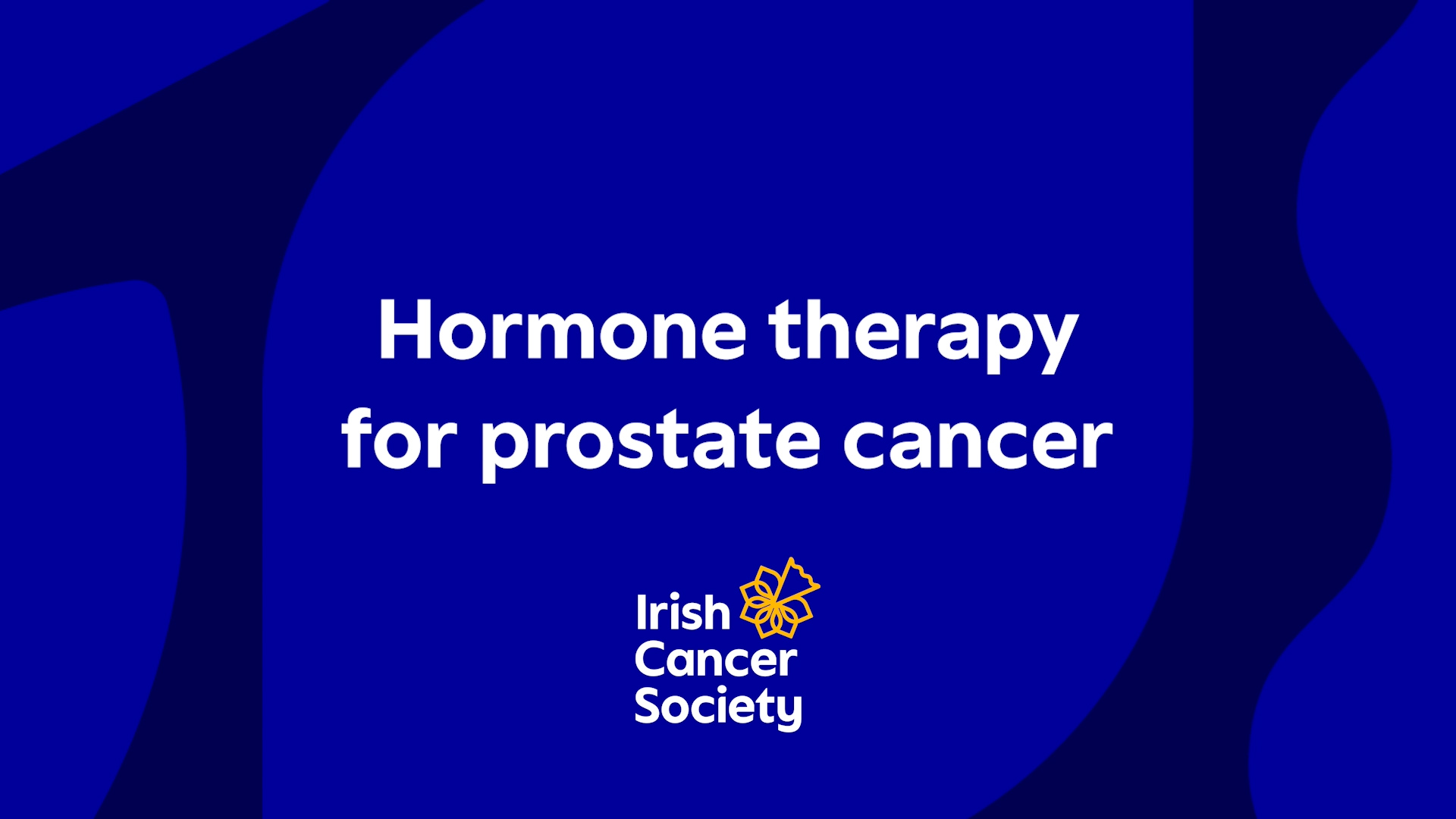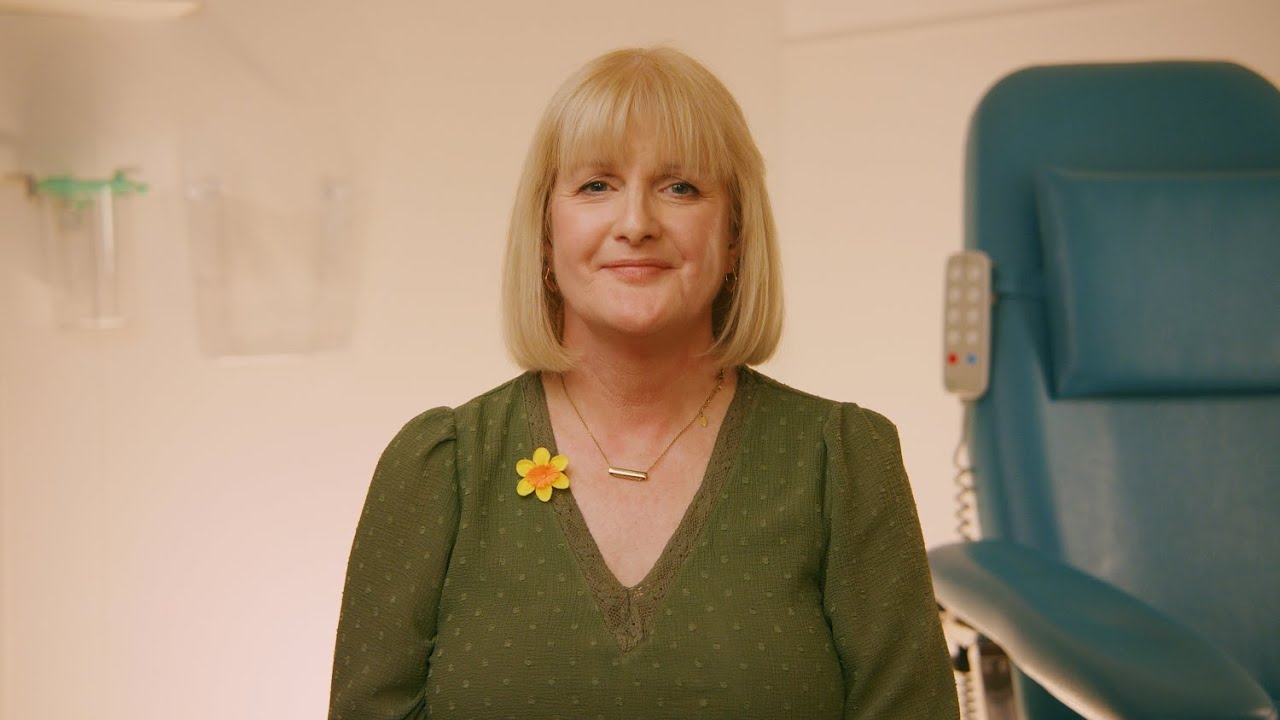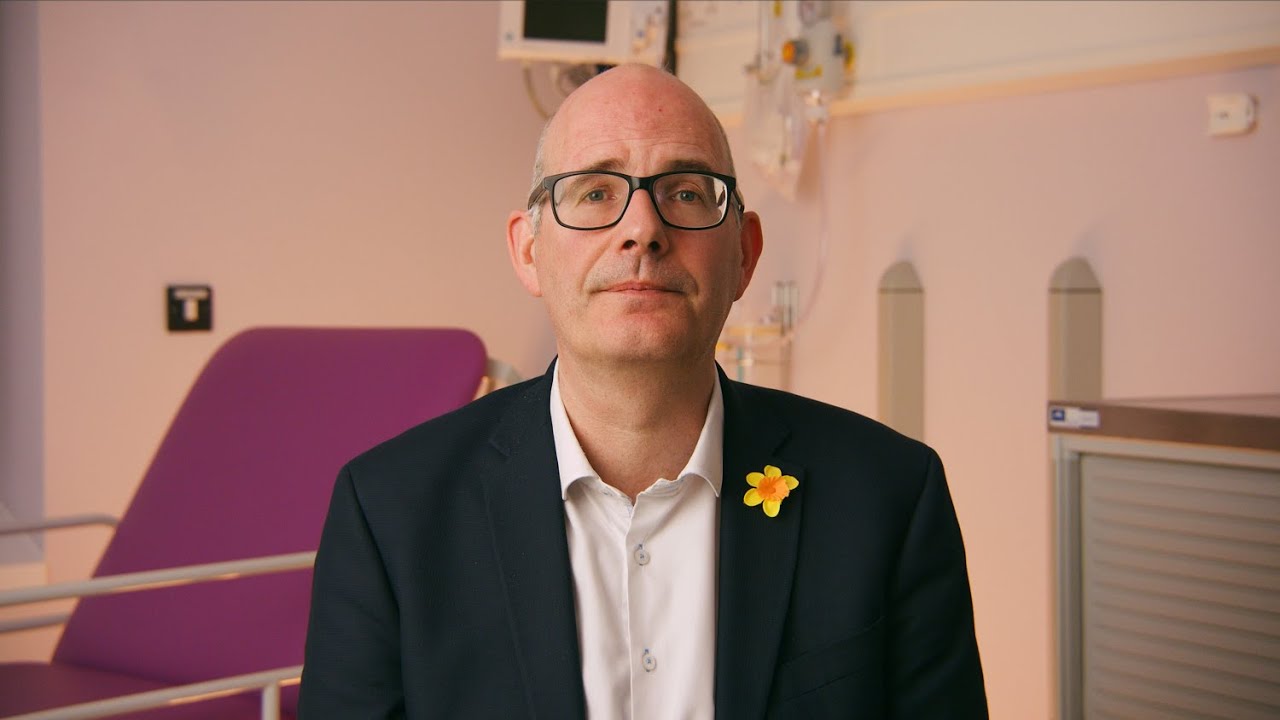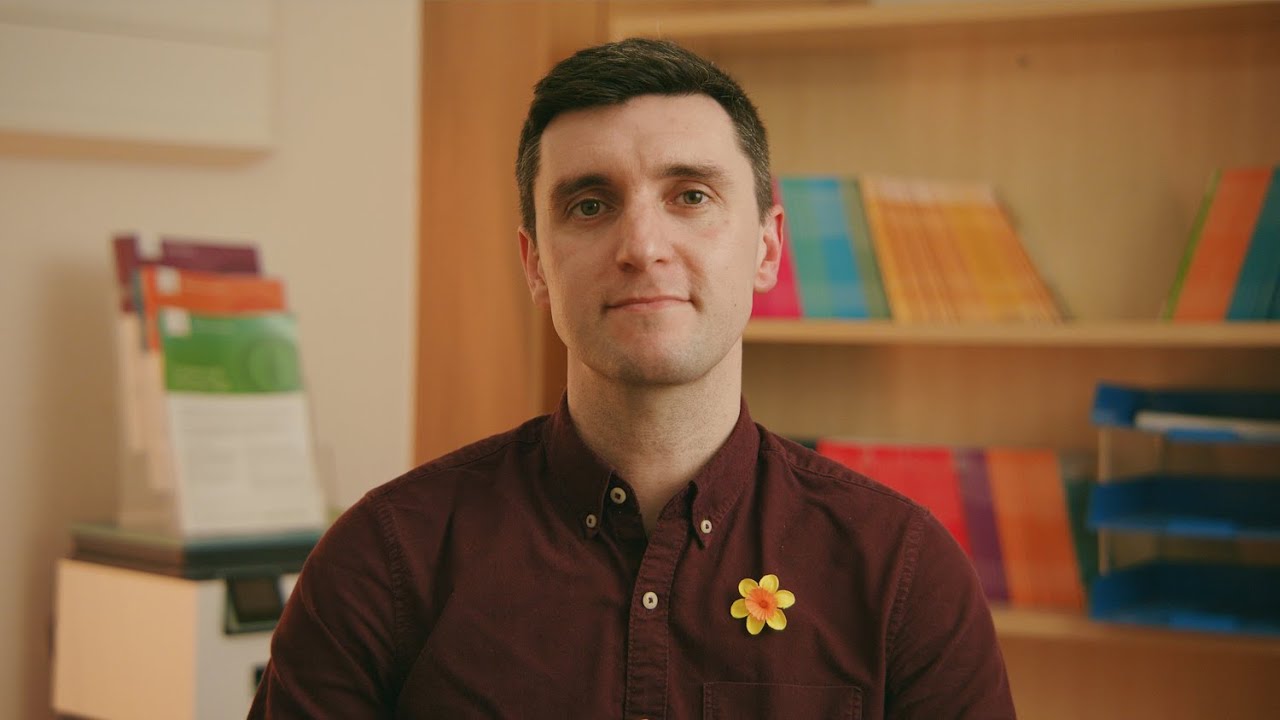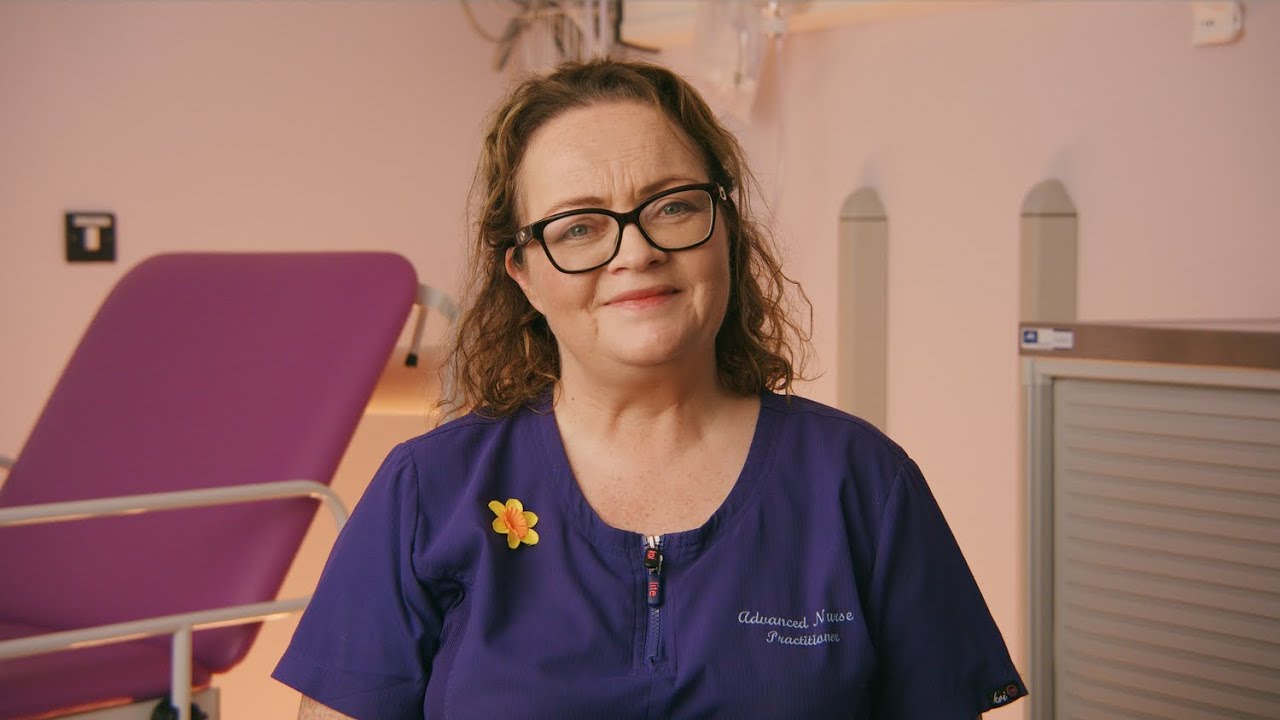Hormone therapy for prostate cancer 5: Life on hormone therapy
This video explains the potential side-effects of hormone therapy for prostate cancer and provides advice on self-management, staying healthy and active in a positive way.
0:08
Patients on hormone therapy may experience side-effects. Most patients cope well with the side-effects; however, every person is different, every drug is different, and side-effects vary depending on the individual and the type of hormone therapy prescribed.
0:26
If you are struggling with some of the side-effects, you should not stop taking your hormone therapy without speaking to your doctor or specialist nurse.
0:36
Testosterone plays a very important role for your body functions, so when the hormone therapy suppresses your testosterone levels, you may experience some of the following side-effects.
0:51
The common side-effects are: hot flushes, sometimes called hot flashes, reduced sex drive, desire or interest in sex, and the ability to get an erection, tiredness and fatigue, mood changes, memory and concentration problems.
1:14
Other side-effects and body changes may occur, such as: middle weight gain, loss of muscle strength, breast swelling or tenderness, dry skin, hair thinning, shrinkage of your penis or testicles, bone thinning, also called osteoporosis, increased risk of heart disease and diabetes over the long term.
1:42
Some of you may have questions about fertility. You might consider storing sperm if you are planning to have children in the future. Family planning is an area that should be discussed honestly with your medical team, before you begin treatment. They will be happy to give you their specific guidance.
2:02
You will have regular appointments to check how your treatment is working and monitor any side-effects. These will involve regular prostate specific antigen blood tests, also called PSA tests. This test is a good way to monitor how you are responding to your treatment.
2:25
You can contact your specialist nurse between appointments if you have any side-effects or symptoms that you may have questions or concerns about. There are many ways to manage your health and wellbeing while on hormone therapy.
2:41
Prostate cancer can affect how you feel about sex and relationships. Coming to terms with the fact that you have cancer can take quite a while. It is hard to relax when you have a lot of worries. You may also be feeling tired from the effects of treatment and lose interest in sex as a result.
3:01
There is no right or wrong way to feel about your sexuality and sex life. You can still enjoy a close and loving relationship with your partner. If you find it hard to express your feelings to your partner or a close friend, talk to your doctor or specialist nurse, who will be able to advise and support you. There are lots of options available to you.
3:27
Looking after your bones can help to reduce your risk of fractures and benefit your overall health. Being physically active can help. Exercise is safe and beneficial for most patients. Your doctor, specialist nurse, or physiotherapist can advise you on how to move your body and get the benefits of activity at any stage of cancer.
3:54
If you are experiencing side-effects of cancer treatment, like fatigue, low mood or weakness, the thought of exercising might seem challenging or even impossible. It is important to know that exercise can help with these symptoms. Even a small amount of movement can help.
4:14
If you need help getting started, or want to make a plan tailored to your needs, you can get in touch with a chartered physiotherapist, who will help you to become more active in a safe and supportive way.
4:29
There are many factors that cause people to gain weight with hormone therapy. Changes in diet and reduced physical activity levels can influence weight gain. Hormone therapy can also cause changes in body composition, meaning you can lose muscle and gain fat. Extra weight tends to build up around the waist, rather than on the hips and buttocks.
4:55
There are some things you can do to help you be as healthy as possible, such as: limit your consumption of red and processed meat. Limit your consumption of fast foods and other processed foods, high in fat, starches and sugars. Eat more wholegrains, vegetables, fruit, and beans. Limit your consumption of alcohol and sugar-sweetened drinks. Ensure you have an adequate intake of calcium and vitamin D to support healthy bones.
5:32
If you would like to get specific advice on diet and nutrition, speak with your specialist nurse, as they may be able to refer you to a dietitian.
5:41
We have provided you with a lot of information today. However, we believe that sharing a patient's experience may be of great benefit to you.
5:53
Watch Jim's video, where he shares his personal hormone therapy experience and advice.
Hormone therapy for prostate cancer playlist
